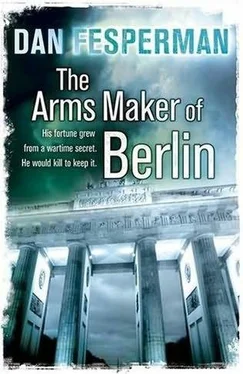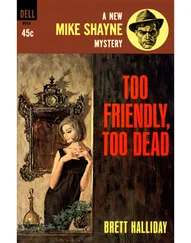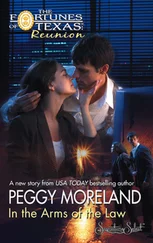Dan Fesperman - The Arms Maker of Berlin
Здесь есть возможность читать онлайн «Dan Fesperman - The Arms Maker of Berlin» весь текст электронной книги совершенно бесплатно (целиком полную версию без сокращений). В некоторых случаях можно слушать аудио, скачать через торрент в формате fb2 и присутствует краткое содержание. Жанр: Триллер, на английском языке. Описание произведения, (предисловие) а так же отзывы посетителей доступны на портале библиотеки ЛибКат.
- Название:The Arms Maker of Berlin
- Автор:
- Жанр:
- Год:неизвестен
- ISBN:нет данных
- Рейтинг книги:5 / 5. Голосов: 1
-
Избранное:Добавить в избранное
- Отзывы:
-
Ваша оценка:
- 100
- 1
- 2
- 3
- 4
- 5
The Arms Maker of Berlin: краткое содержание, описание и аннотация
Предлагаем к чтению аннотацию, описание, краткое содержание или предисловие (зависит от того, что написал сам автор книги «The Arms Maker of Berlin»). Если вы не нашли необходимую информацию о книге — напишите в комментариях, мы постараемся отыскать её.
The Arms Maker of Berlin — читать онлайн бесплатно полную книгу (весь текст) целиком
Ниже представлен текст книги, разбитый по страницам. Система сохранения места последней прочитанной страницы, позволяет с удобством читать онлайн бесплатно книгу «The Arms Maker of Berlin», без необходимости каждый раз заново искать на чём Вы остановились. Поставьте закладку, и сможете в любой момент перейти на страницу, на которой закончили чтение.
Интервал:
Закладка:
“Here we are. Yes, you are the co-holder of the account. I’ll summon the assistant manager, Mr. Schmidt. He will take care of you right away.”
Nat glanced toward the glass door at the entrance. No one appeared to be waiting outside.
Herr Schmidt, grave in manner and portly in build, approached in a charcoal suit and motioned toward the back of the bank, like a maître d’ gesturing toward a prime table. Nat didn’t say a word as they marched down a rear corridor to a small carpeted room with soundproofed walls, a tidy, square table, and a pair of black leather swivel chairs. Herr Schmidt double-checked Nat’s identification and then nodded.
“Please wait here, Mr. Turnbull. I will return in a few moments with your account box.”
Shortly afterward, Monique entered with a silver tray bearing a crystal glass and a bottle of mineral water. Herr Schmidt followed. He carried a long, flat metal box of stainless steel, or maybe titanium. Nat stood, partly out of politeness, but also because he could barely contain himself. The box-a drawer, really-was about nine by fifteen inches, and roughly four inches deep. Herr Schmidt placed it gently on the table, laid a key on top, and turned to go. He paused just before shutting the door.
“Will there be anything else for now, Mr. Turnbull?”
“How much time do I have?”
“As much as you need, sir. We close at four thirty.”
Roughly seven hours. More than enough.
“Thank you. I’ll let you know when I’m done.”
Nat sighed in anticipation as the door shut. He was so giddy he nearly broke into laughter. Then he checked himself. For all he knew, Gordon had one last gag up his sleeve.
He turned the key and slid open the drawer. No jokes this time. Four gray folders with faded labels stared up at him. Each was fairly thin. Beneath them were two letter-sized envelopes-one new, one old-and some sort of multipage memo, typed in German, with a swastika in the letterhead.
The new envelope was unsealed and bright white, and had Nat’s name on it in Gordon’s handwriting. The old one, yellowed with age, had a Swiss airmail stamp from long ago, and was addressed to Vivian Sherman, on Brady Avenue in Baltimore, MD, USA. It was sealed but not postmarked. Gordon had never mailed it.
Nat set the envelopes and the German memo aside and checked the headings on the folders: “Fleece,” “Magneto II,” “Stuckart, Erich,” and “Icarus Expenses-January 1945.”
It was all here.
He coughed nervously and opened the expenses file, just to see how much was there. There were three sheets of paper, each with columns of numbers and notations, nothing more. Hardly surprising. He shut it and quickly checked inside the other three folders. He was dying to read the contents, especially Fleece, the fattest of the bunch, but he needed to follow his plan to the letter, no matter how great the temptation for detours. If he was sidetracked now he might lose everything, because he was certain that Holland’s men-or somebody else’s men-were out there, probably still closing in.
So Nat pushed the folders aside, positioned his camera on the tripod, and methodically began shooting pictures of every page, one document after another. He didn’t dare stop to read, not yet, although he couldn’t help registering what each set of papers represented-agent reports, planning memos, surveillance logs, a concise dossier on Erich Stuckart and his circle of Nazi friends in Bern, and, in that final memo in German, the one separate from the folders, the transcript of Martin Göllner’s 1943 interrogation of Kurt Bauer. The very one that Gordon had purchased from Göllner in the ruins of postwar Berlin. Pure gold.
When he had photographed everything, he briefly checked a sampling of images for legibility, then ejected the flash drive wafer and inserted a new one. He then repeated the process, making copies upon copies for nearly two hours more.
Finally, with that chore completed, he repacked his equipment and reopened the folder marked “Fleece.” It was thirty-seven pages of black typescript on legal-size paper, stapled in the upper left corner. The lettering was faded but easily legible.
The cover page told him that it was the after-action report of Gordon Wolfe, aka Icarus, as dictated to OSS operative Frederick Loofbourow, or 493, at a time when Gordon still would have been in the hospital, being treated for his wounds. From the little Nat had already glimpsed, he was betting that this, along with Göllner’s interrogation report, constituted the heart of the matter. Or, as Gordon had once boasted, “Live ammunition. Pick it up and it might go off in your hands. Boom!”
Nat poured a fresh glass of water and checked his watch. Still plenty of time.
He began to read.
Live ammunition indeed.
THIRTY-ONE
Operation Fleece
Report of ICARUS (543), as dictated to 493
Prepared February 2, 1945
On Monday, January 8, 1945, the two of us (myself and Swiss national Sabine Keller, of Adelboden) departed after sunset from Schaffhausen accompanied by a guide. We crossed the Swiss border in a forest two miles northeast of Thayingen, opposite the German village of Binningen. Cloudy, no moon.
The guide departed. He had advised us that we would pass three roads before reaching Binningen. It was completely dark and we could proceed only by compass, East 12. After passing the second road we came to a third where we saw a family riding in a farm wagon. We hid behind a stone wall and ran on. We had to cross a brook and decided to jump. We stopped at a barn so I could change into my officer’s uniform. From there we reached the station at Binningen.
I bought tickets to Singen and we were requested to show our papers. The train had neither lights nor windows. The station at Singen is in ruins. In conversation with others we learned that papers are investigated in Singen by the Gestapo, and all its men are members of the SD. They carry pink identification cards, signed by Kaltenbrunner, nothing on the back, and on the left-hand side a photograph of the bearer. We stayed at Singen for two hours, and at 22:00 went to Radolfzell, where we spent the night at the station after the sentry examined our papers.
The narrative went on in this vein for several pages, chock-full of details about how to move around in enemy territory. Nat was entranced as he imagined the young Gordon Wolfe, looking sharp and sinister in his officer’s cap and uniform, inching his way toward Munich with the pretty Sabine at his side. They must have been terrified.
In the early going, their luck held. They hopped their way east along the north shore of Lake Constance, first to Friedrichshafen, then to Lindau. Then they headed north, crossing Bavaria on a train to Buchloe, where they endured further document checks and slept overnight at the station. From there they caught trains to their target destination of Munich, where they sought out their local OSS contact.
His name was Helmdorff, and he managed a factory that was part of the Bauer industrial empire. His services had been arranged by Kurt Bauer, who was referred to throughout the report by his code name of Magneto II. Helmdorff gave Gordon and Sabine lodging in the cellar of an empty building at the factory.
Gordon and Sabine then split up, apparently by prior arrangement. She ventured into the city accompanied by Helmdorff while Gordon initiated contact with Göllner.
Helmdorff instructed me to telephone Göllner from Theresienstrasse 4, where I could get a direct connection with the Gestapo office. He drew me a map, explaining how I could find the telephone booth on the first floor.
I reached Göllner by telephone at 09:30 and asked if I could meet him at his home. He sounded very agitated and cut our conversation short. He asked me to leave my present location at once, and said I could see him at 11:00 at his office.
Читать дальшеИнтервал:
Закладка:
Похожие книги на «The Arms Maker of Berlin»
Представляем Вашему вниманию похожие книги на «The Arms Maker of Berlin» списком для выбора. Мы отобрали схожую по названию и смыслу литературу в надежде предоставить читателям больше вариантов отыскать новые, интересные, ещё непрочитанные произведения.
Обсуждение, отзывы о книге «The Arms Maker of Berlin» и просто собственные мнения читателей. Оставьте ваши комментарии, напишите, что Вы думаете о произведении, его смысле или главных героях. Укажите что конкретно понравилось, а что нет, и почему Вы так считаете.












